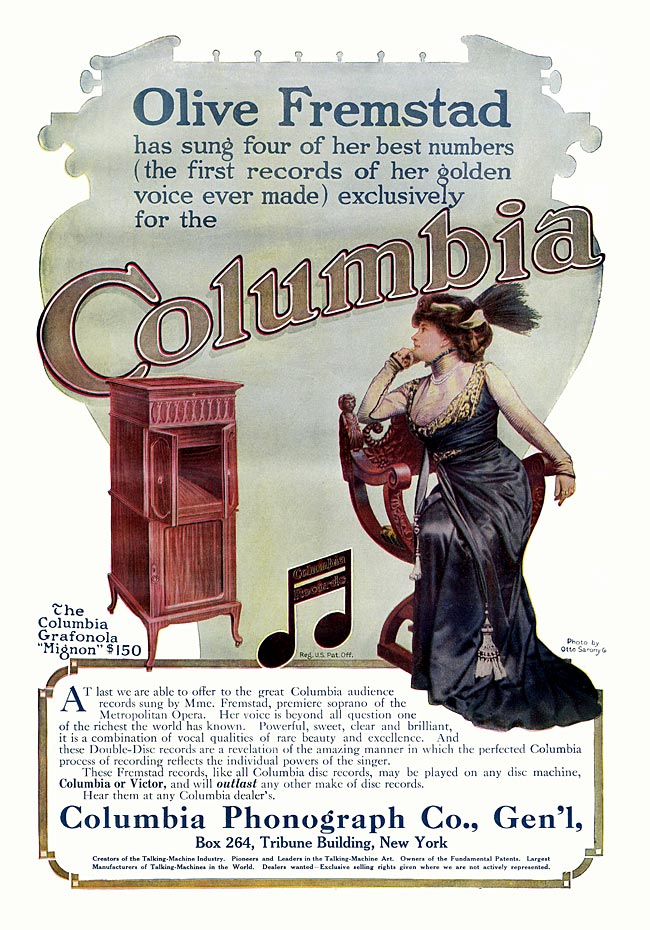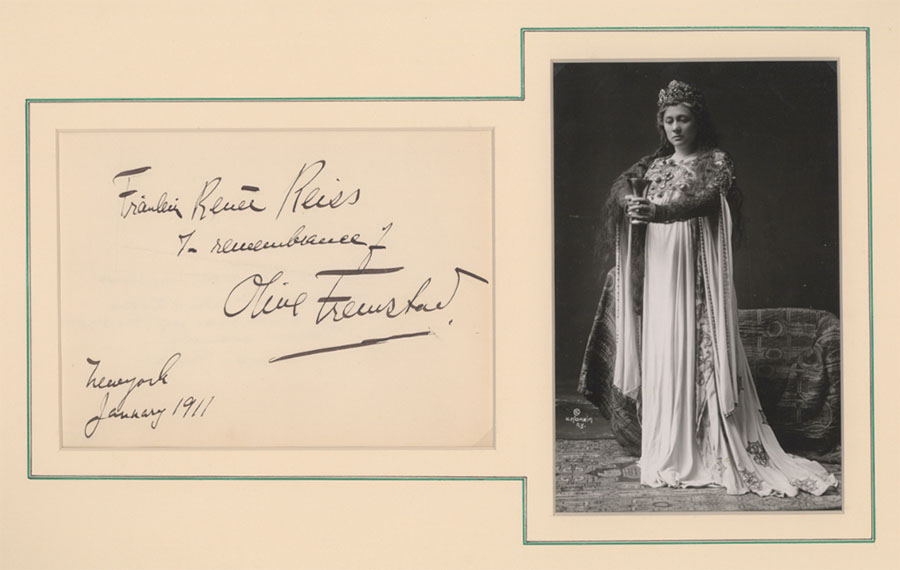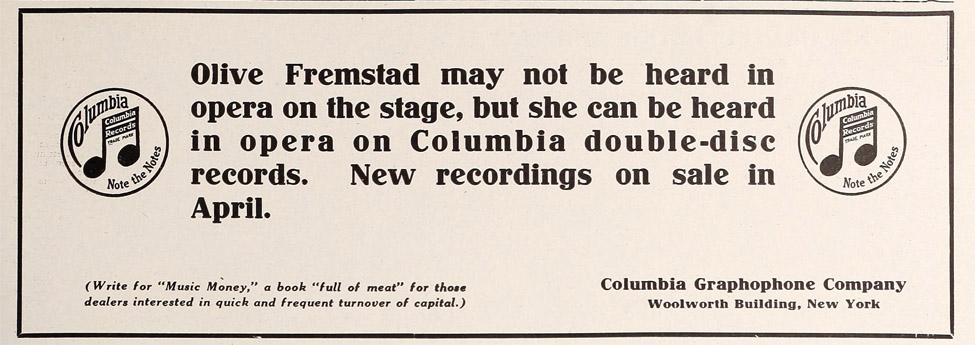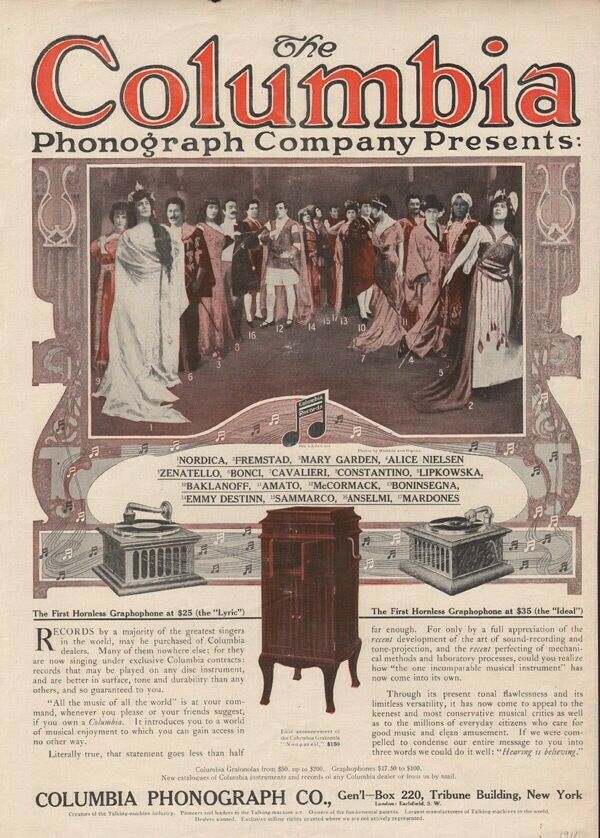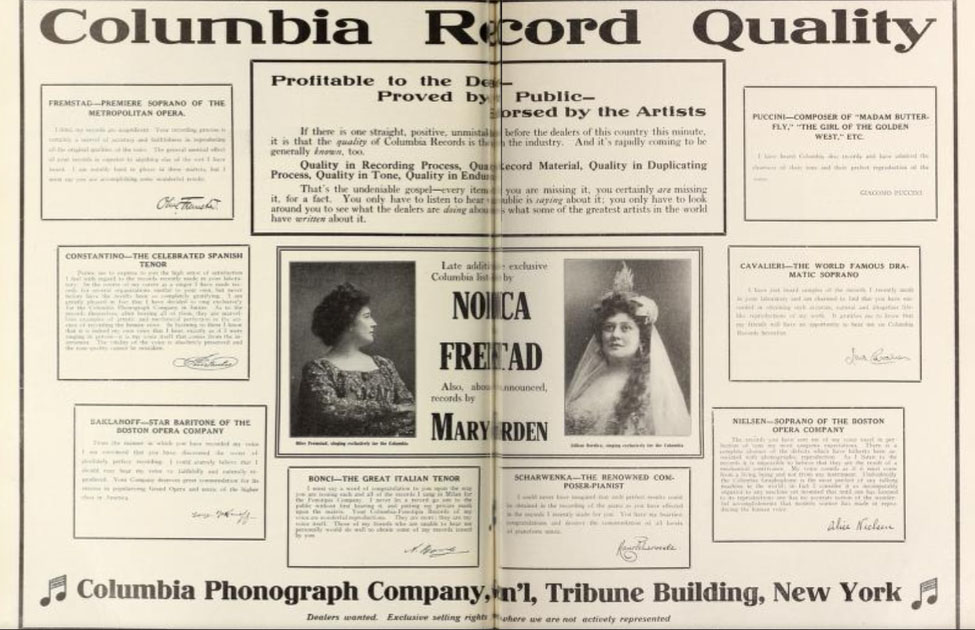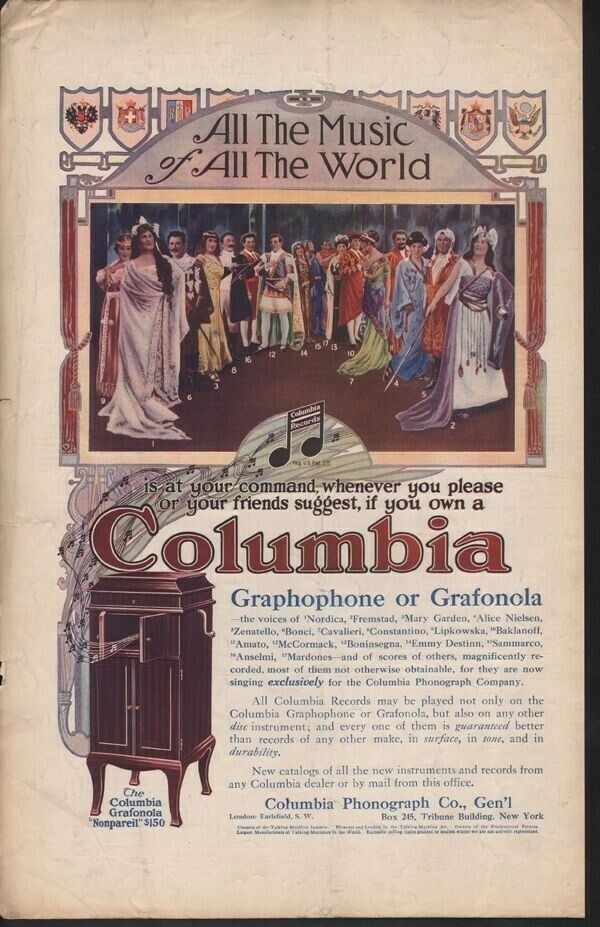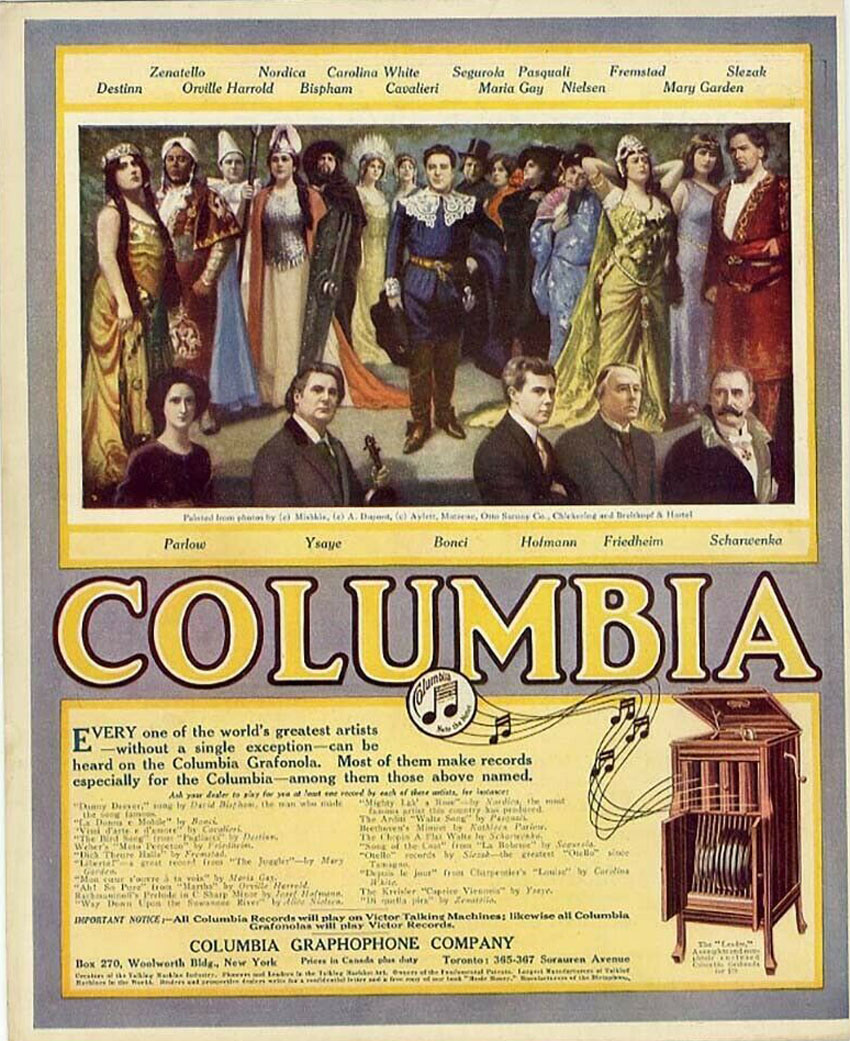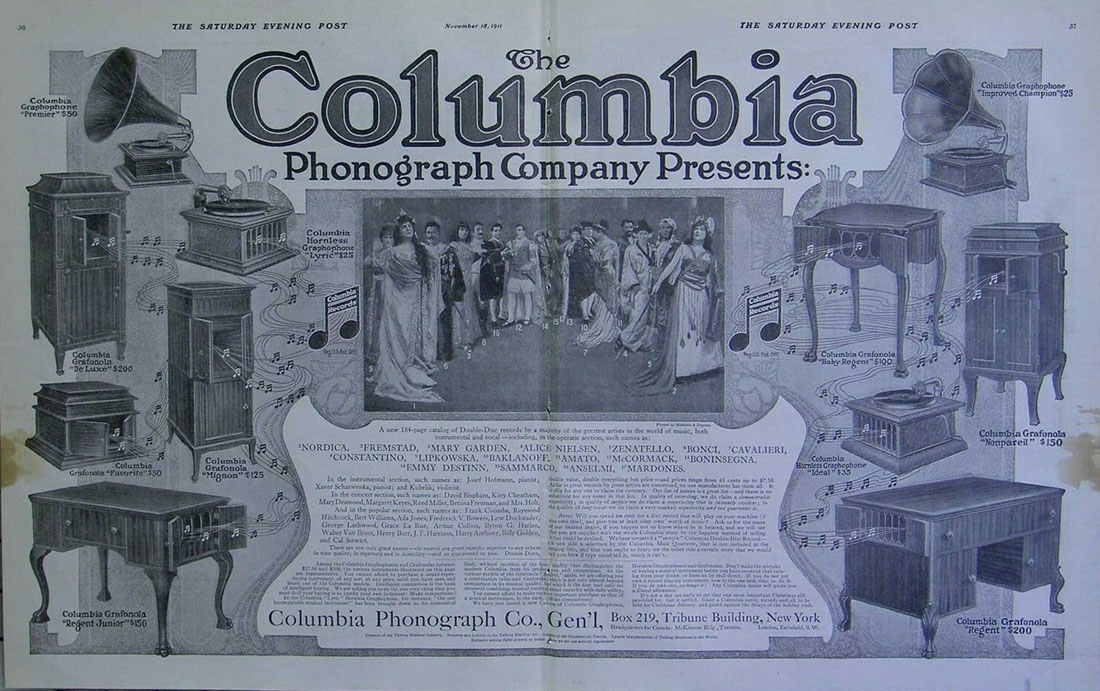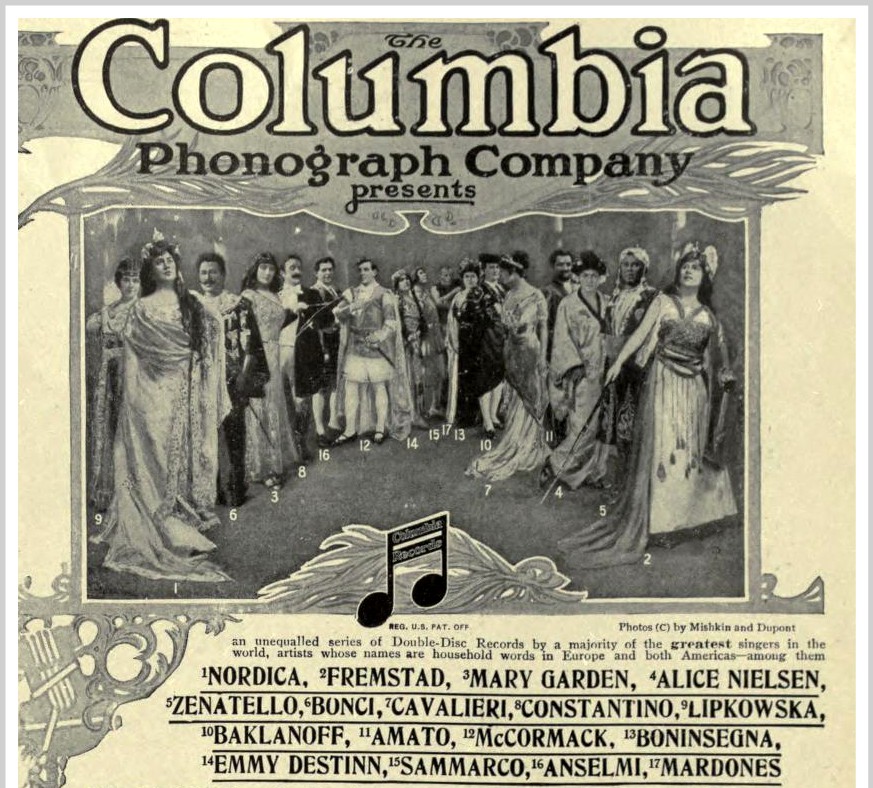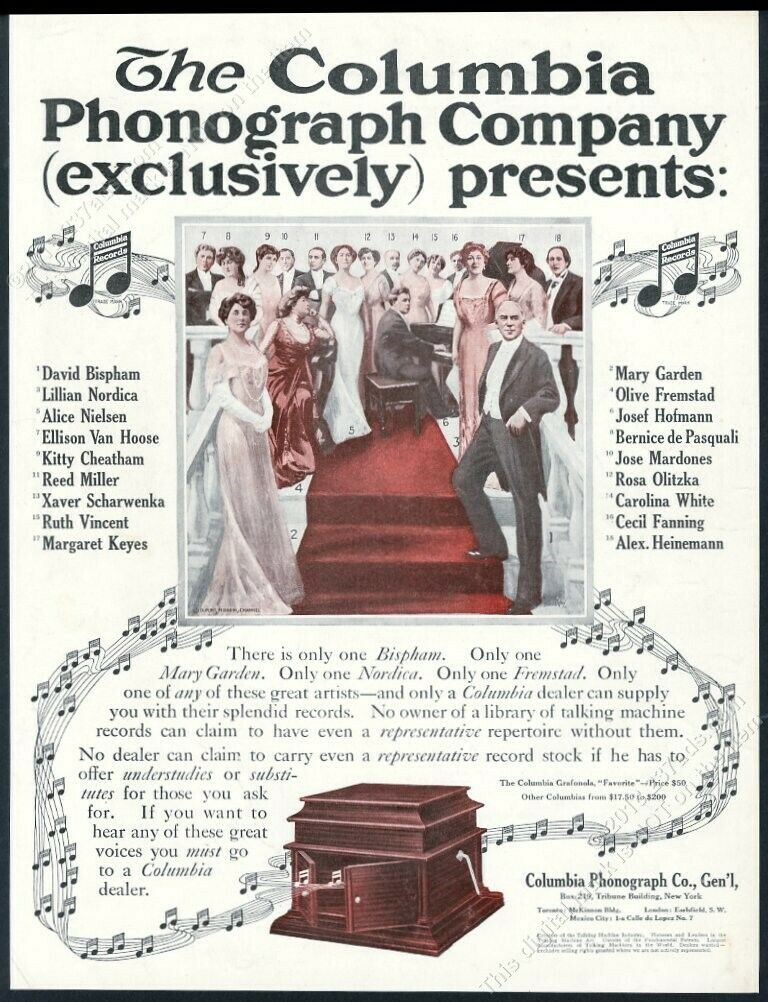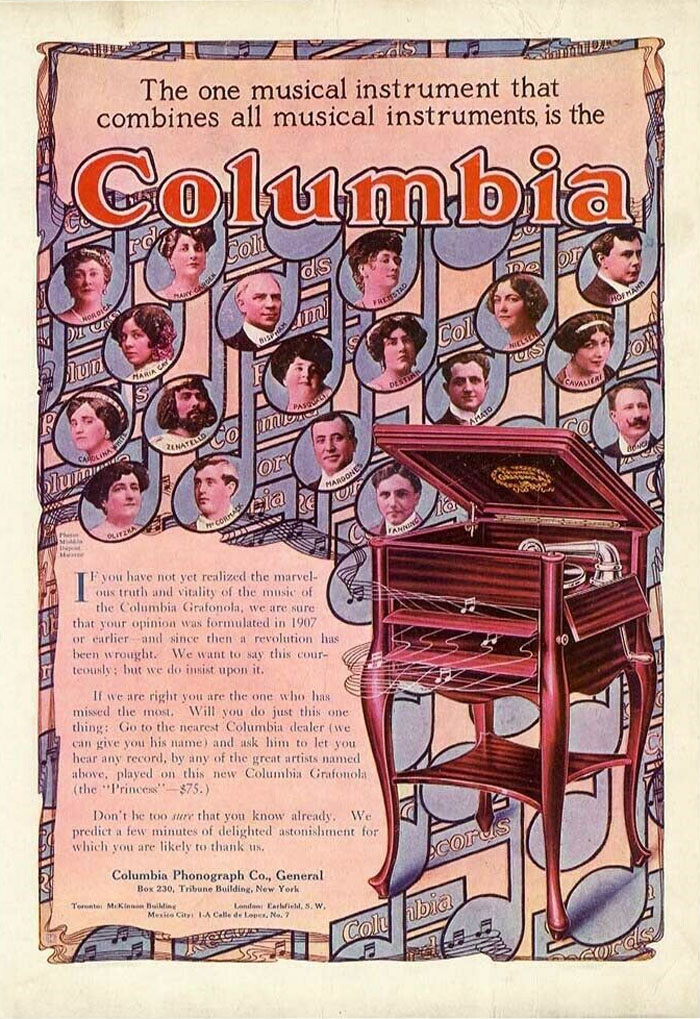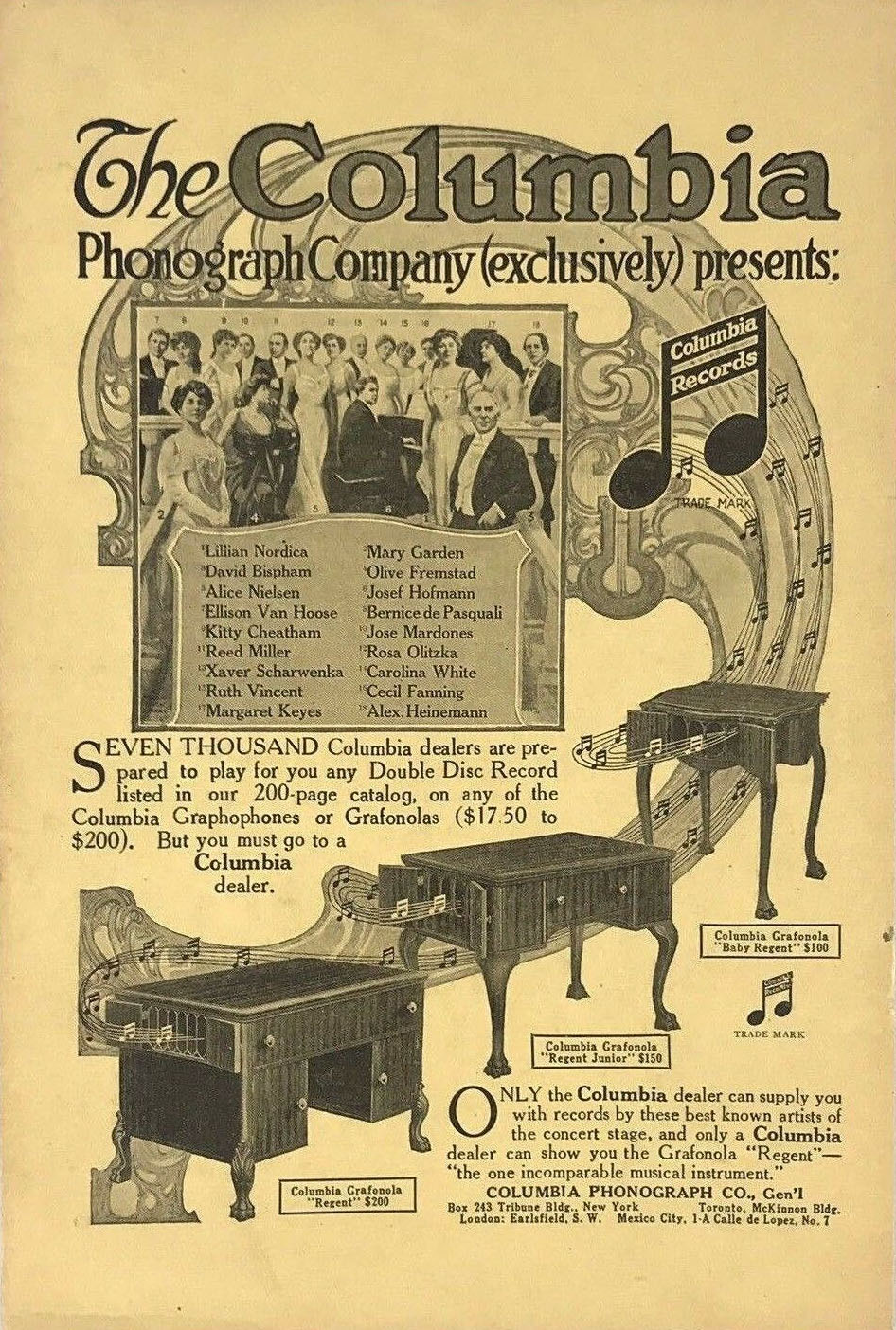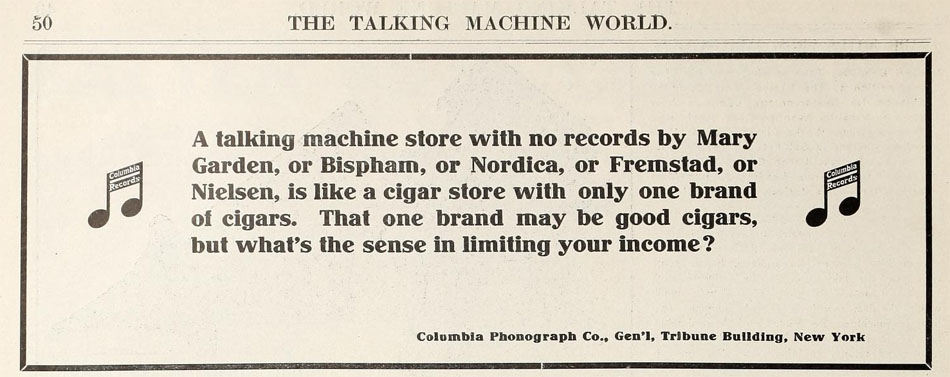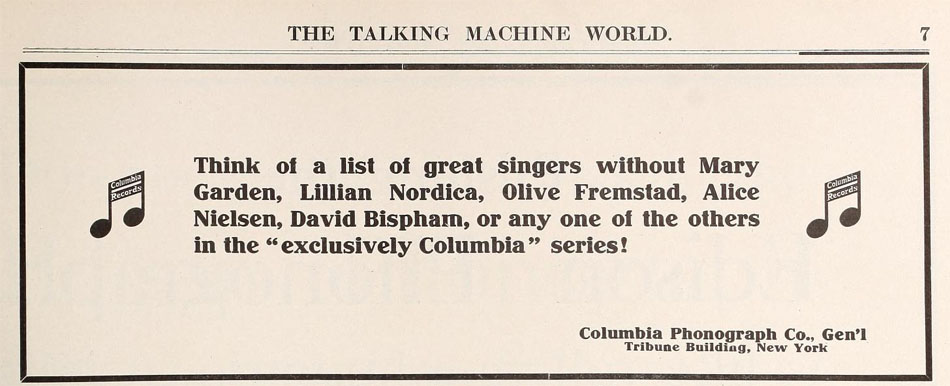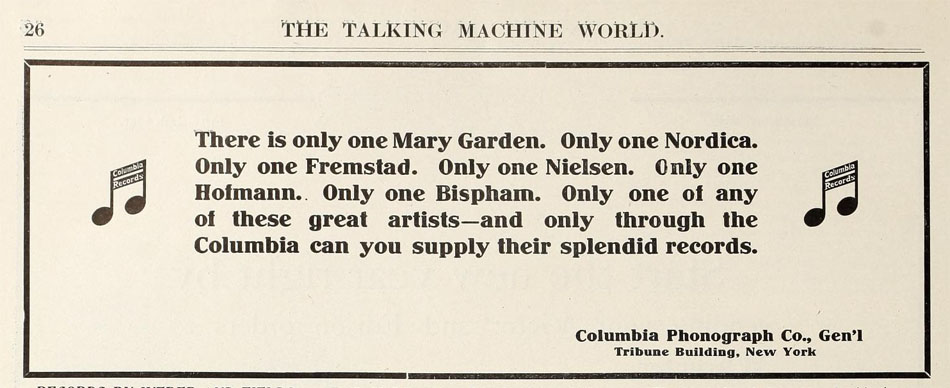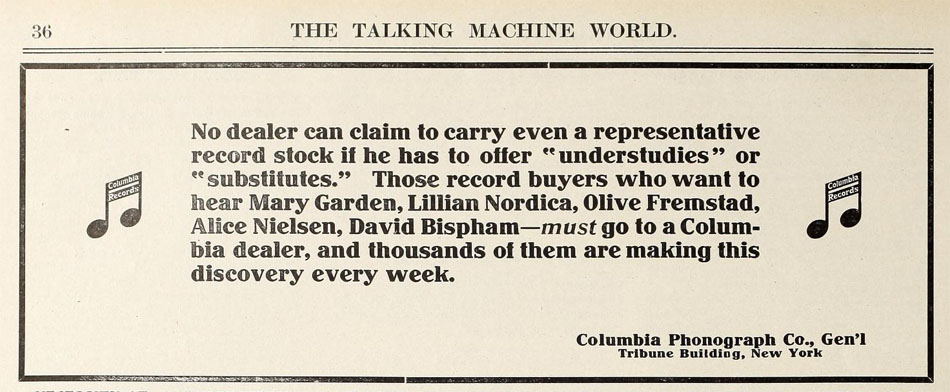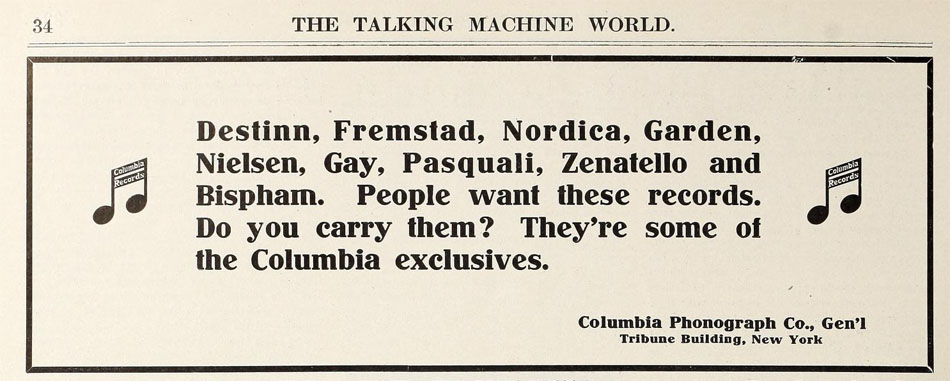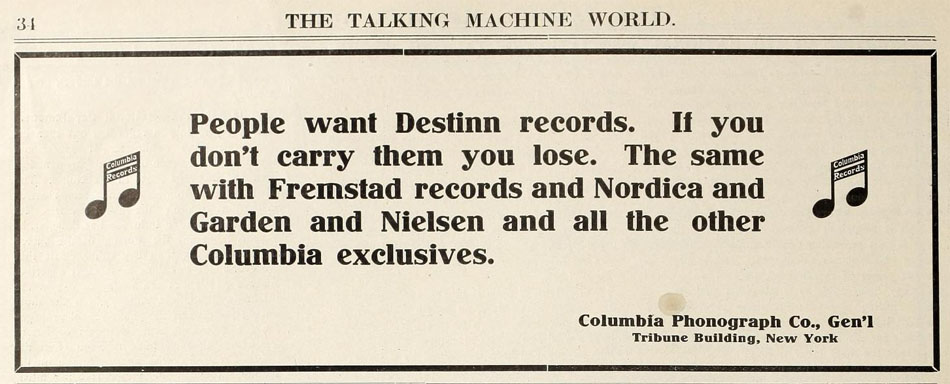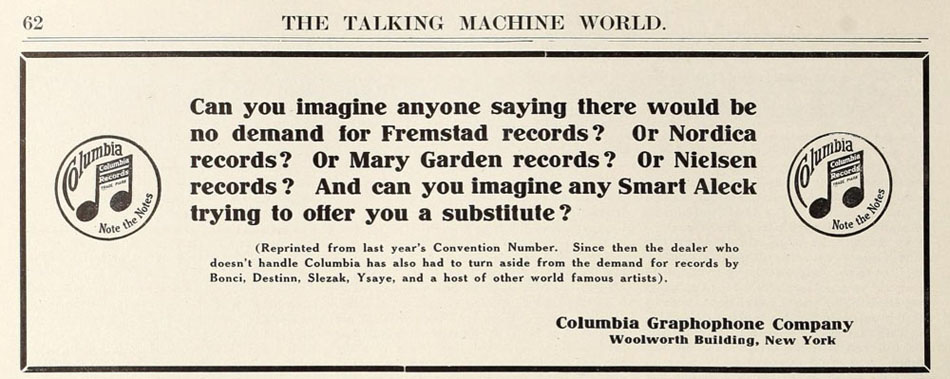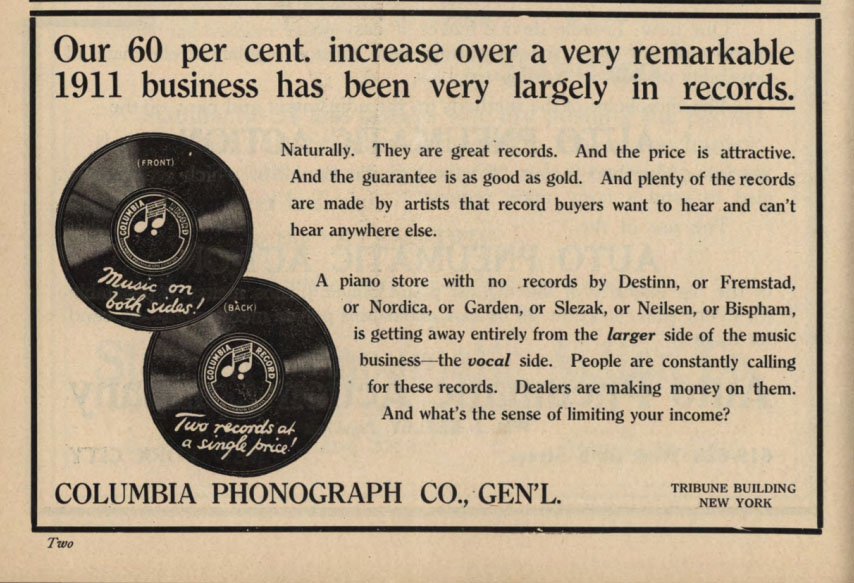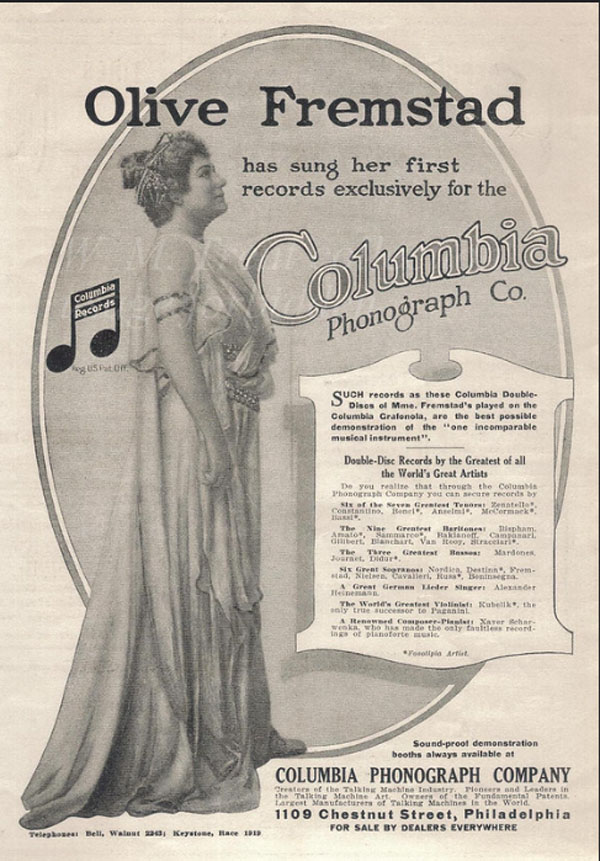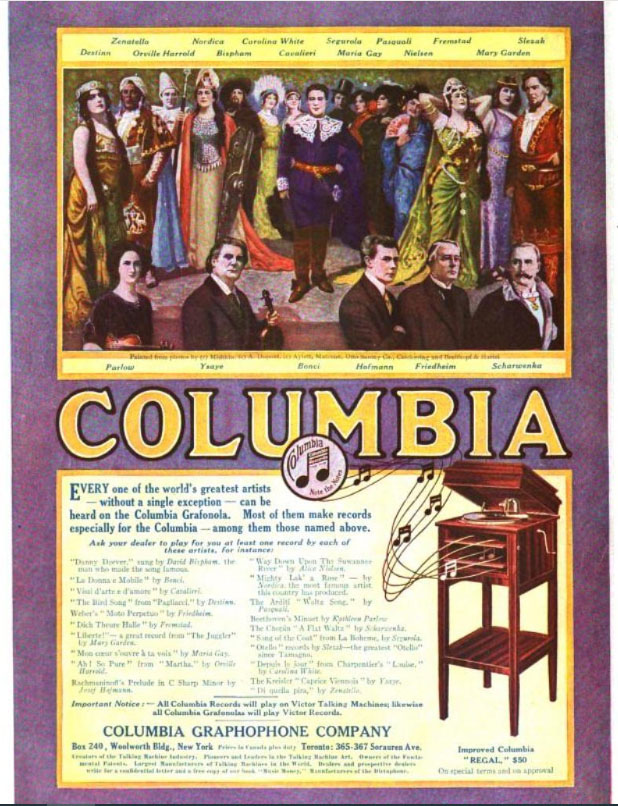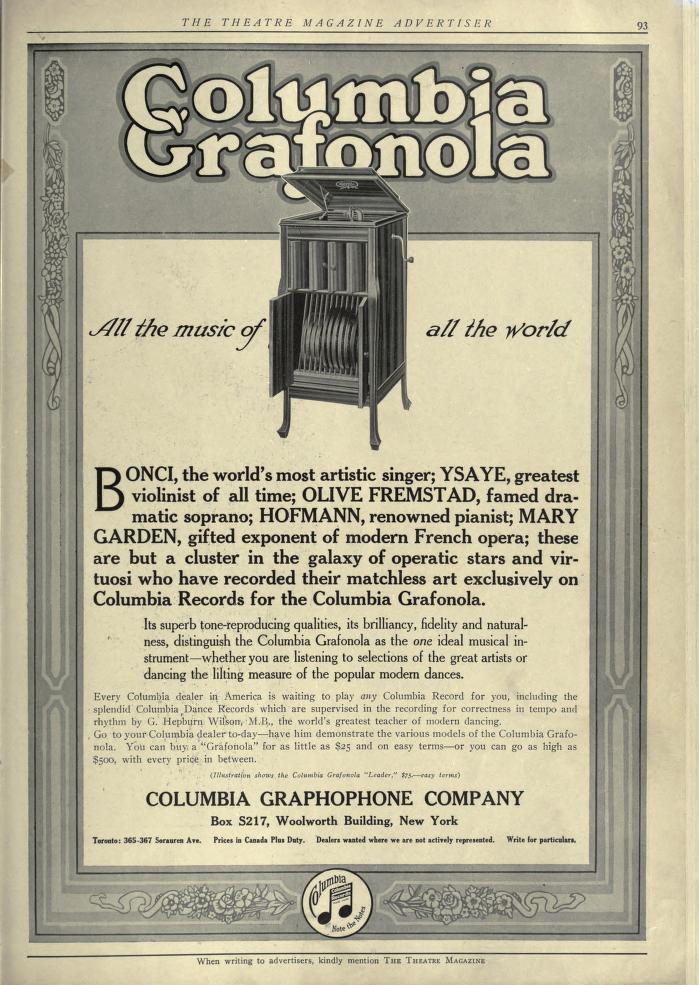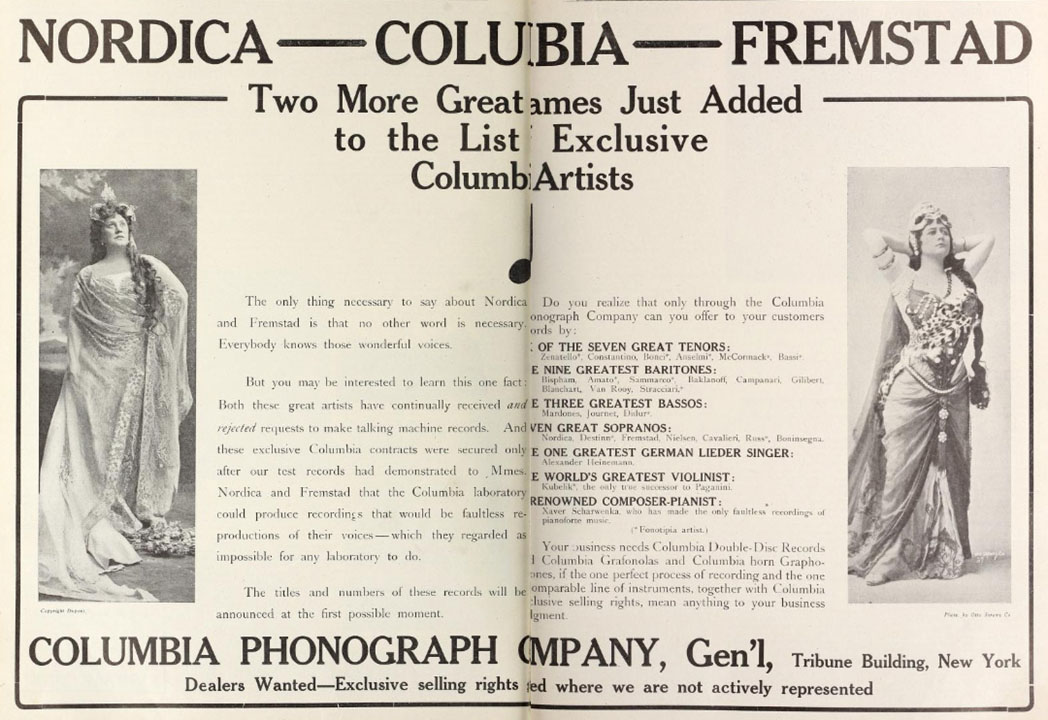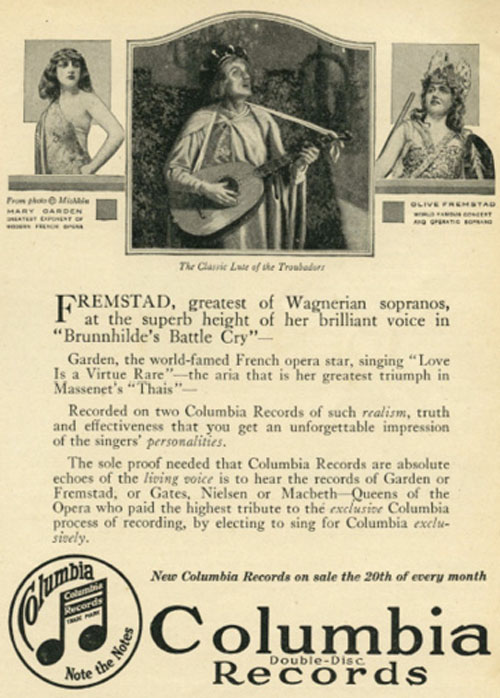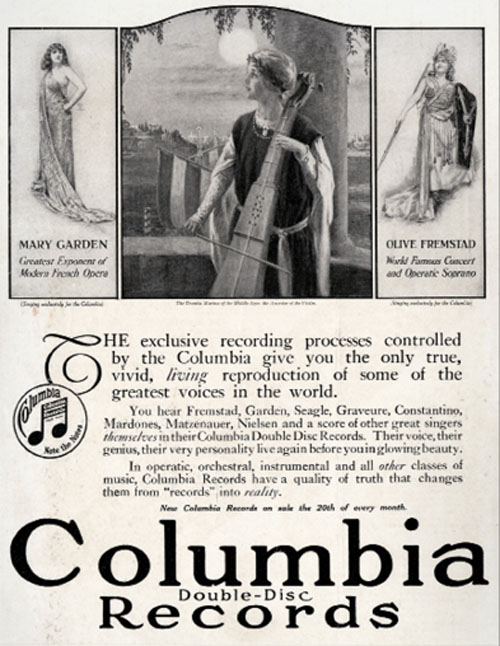|
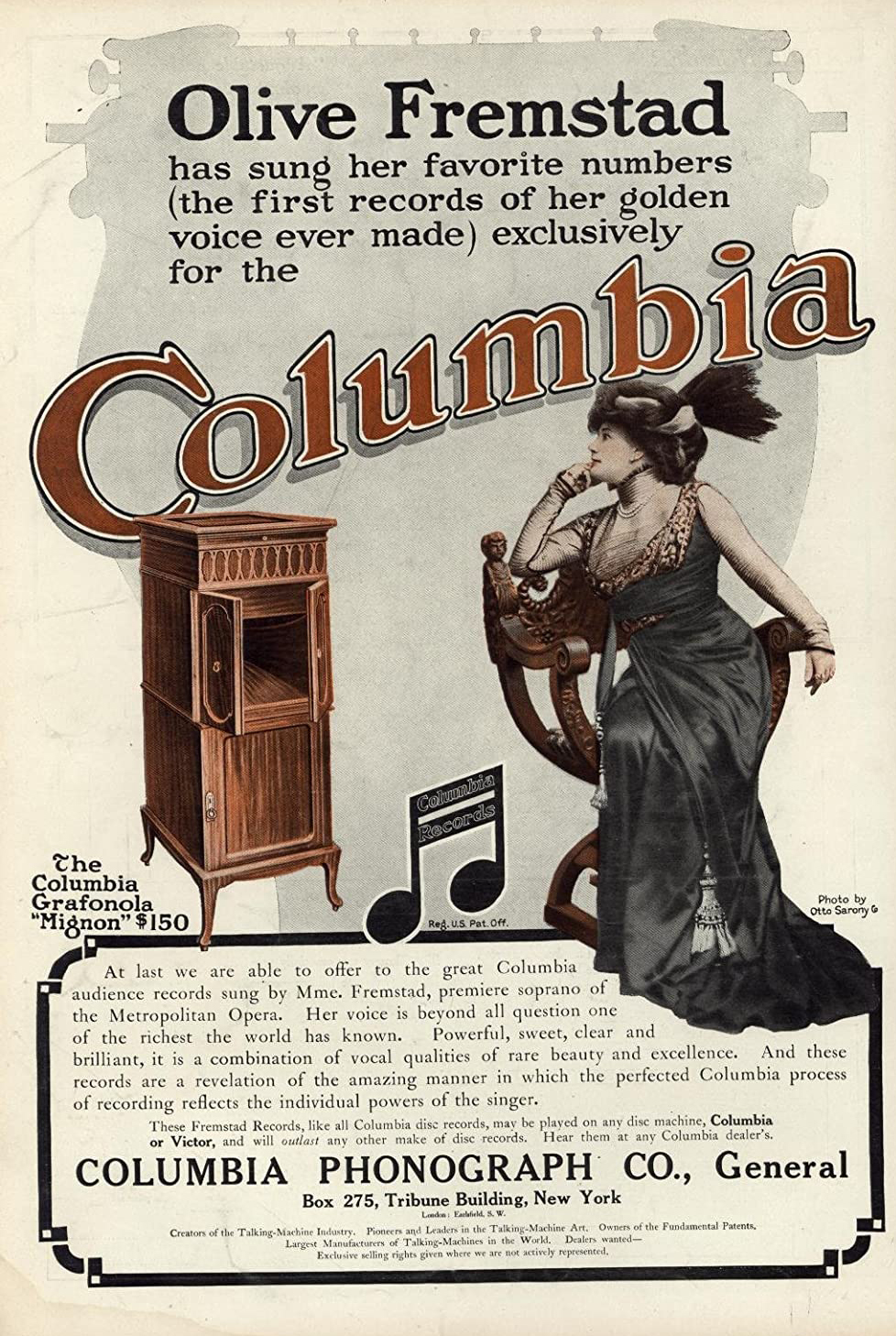
First records of Fremstad's voice ever made exclusively for Columbia, Scientific American, 1911 (PM-1830)
Olive Fremstad, Signed 1911 Photograph (Courtesy Wurlitzer-Bruck and available for purchase)
The Talking Machine World, April 15, 1914
Nordica, Fremstad and Mary Garden, 1911
Nordica, Fremstad and Mary Garden, The Talking Machine World, March 15, 1911
Nordica, Fremstad and Mary Garden, 1911
Nordica, Fremstad and Mary Garden, 1913 (PM-2075)
Nordica, Fremstad and Mary Garden, The Saturday Evening Post 1911
Nordica, Fremstad and Mary Garden, 1911
Nordica, Fremstad and Mary Garden, 1912
Nordica, Fremstad and Mary Garden, 1912
Nordica, Fremstad and Mary Garden, 1912
The Talking Machine World, Nordica, Fremstad and Mary Garden, January 1912
The Talking Machine World, Nordica, Fremstad and Mary Garden, February 1912
The Talking Machine World, Nordica, Fremstad and Mary Garden, February 1912
The Talking Machine World, Nordica, Fremstad and Mary Garden, February 1912
The Talking Machine World, Nordica, Fremstad and Mary Garden, May 1912
The Talking Machine World, Nordica, Fremstad and Mary Garden, July 1912
The Talking Machine World, Nordica, Fremstad and Mary Garden, July 1913
A piano store with no Fremstad, Nordica, or Garden records is missing out on the vocal side of the music business. 1912? NIC
Olive Fremstad, McClure's Magazine, December 1913
NIC - TBD
Nordica, Fremstad and Mary Garden, Garden Magazine, August 1913
Fremstad and Mary Garden, The Theatre Magazine, September 1914
Columbia Records featuring Mary Garden and Olive Fremstad, 1916. Outing 69, October 1916. .. .
Columbia Records featuring Mary Garden and Olive Fremstad, 1916. Hearstís, June 1916 ..
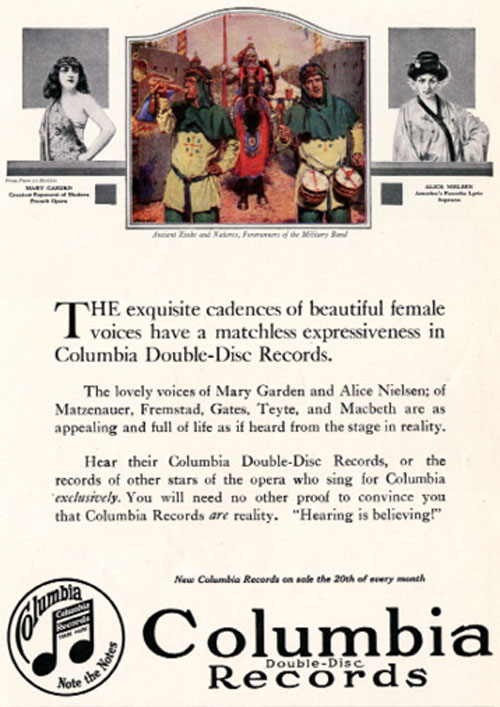
Columbia Records featuring Mary Garden and Alice Nielsen; Olive Fremstad listed in ad, Country Life in America, October 1916
Phonographia |
